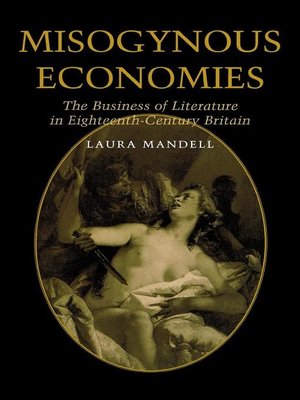Misogynous Economies
ebook ∣ The Business of Literature in Eighteenth-Century Britain
By Laura C. Mandell

Sign up to save your library
With an OverDrive account, you can save your favorite libraries for at-a-glance information about availability. Find out more about OverDrive accounts.
Find this title in Libby, the library reading app by OverDrive.



Search for a digital library with this title
Title found at these libraries:
| Loading... |
The eighteenth century saw the birth of the concept of literature as business: literature critiqued and promoted capitalism, and books themselves became highly marketable canonical objects. During this period, misogynous representations of women often served to advance capitalist desires and to redirect feelings of antagonism toward the emerging capitalist order. Misogynous Economies proposes that oppression of women may not have been the primary goal of these misogynistic depictions.
Using psychoanalytic concepts developed by Julia Kristeva, Mandell argues that passionate feelings about the alienating socioeconomic changes brought on by capitalism were displaced onto representations that inspired hatred of women and disgust with the female body. Such displacements also played a role in canon formation. The accepted literary canon resulted not simply from choices made by eighteenth-century critics but also, as Mandell argues, from editorial and production practices designed to stimulate readers' desires to identify with male poets.
Mandell considers a range of authors, from Dryden and Pope to Anna Letitia Barbauld, throughout the eighteenth century. She also reconsiders Augustan satire, offering a radically new view that its misogyny is an attempt to resist the commodification of literature. Mandell shows how misogyny was put to use in public discourse by a culture confronting modernization and resisting alienation.






